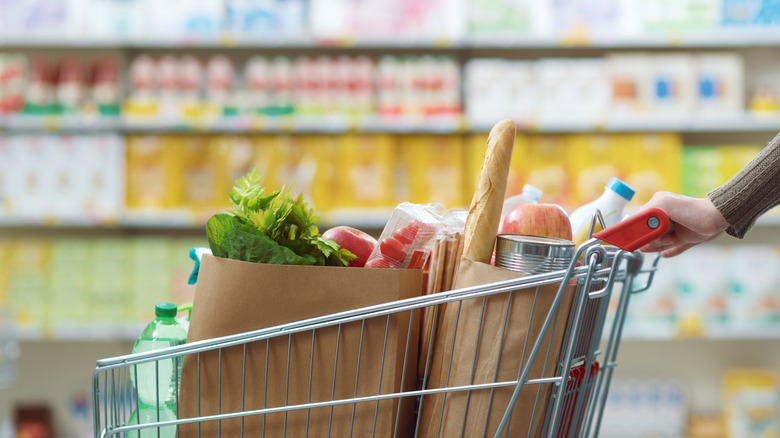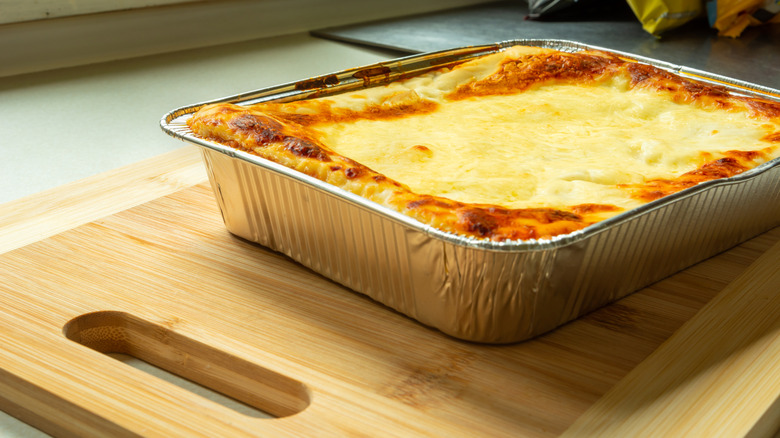Always Avoid Buying This Grocery Item In Bulk
Prices are high, we're all watching our spending, and for many of us, groceries eat up a significant amount of our paycheck. For foodies looking to cut down and spend less, buying in bulk presents a cost-effective option for stocking up and spending less. Health food stores and big retailers like Whole Foods and Sprouts offer bulk bins of dry goods — think grains, granola, nuts, seeds, and spices — with pour-your-own dispensers, allowing you to bag up exactly how much you want. Another way to buy in bulk is with a membership to your local Sam's Club or Costco, where your normal grocery store brands and products are offered, but in bulk sizing — everything from produce to baked goods is sold in bulk.
However, buying in bulk requires a little bit of strategy — after all, it only makes sense for non-perishable items and goods you know you or your family use up quickly. For this reason, buying produce in bulk, for the average shopper, just doesn't make sense, unless you have a crowd to feed or a surefire way to ensure it gets used. Otherwise, for the average consumer, even hardier items like onions and potatoes will often end up moldy, to say nothing of notoriously quick-to-spoil produce like avocados and leafy greens. Don't let the allure of the killer savings tempt you, as ultimately, produce getting tossed in the trash before it can be eaten is never a win. Having a plan to store and use bulk purchases efficiently is key to making the most of your savings.
Avoiding wasted produce when you buy in bulk
When you crunch the numbers (and crunch the numbers you should), you'll usually find that buying in larger quantities costs less per ounce compared to purchasing smaller amounts at your regular grocery store. Always check the unit price — this is the number that matters most if you're trying to save money at the grocery store.
However, buying in bulk isn't always a win, depending on the item — looking at you, Whole Foods bulk nuts. Since saving money and reducing waste should always be the goal, be especially mindful when buying produce in bulk. Have a plan to use it before it spoils. A shocking 30% of produce worldwide ends up in landfills instead of on plates. We can all do our part to tackle this issue, starting in our own kitchens with simple strategies to reduce food waste.
If you ever find yourself with more vegetables than you can eat — and let's be honest, we've all been there with a bag of spinach going soggy in the crisper drawer — freeze them before they go bad. Or make a batch of homemade spinach lasagna, pasta sauce, or soup to tuck away for busy nights. Not only will you prevent waste, but you'll also stockpile quick, ready-to-go meals for the future.

